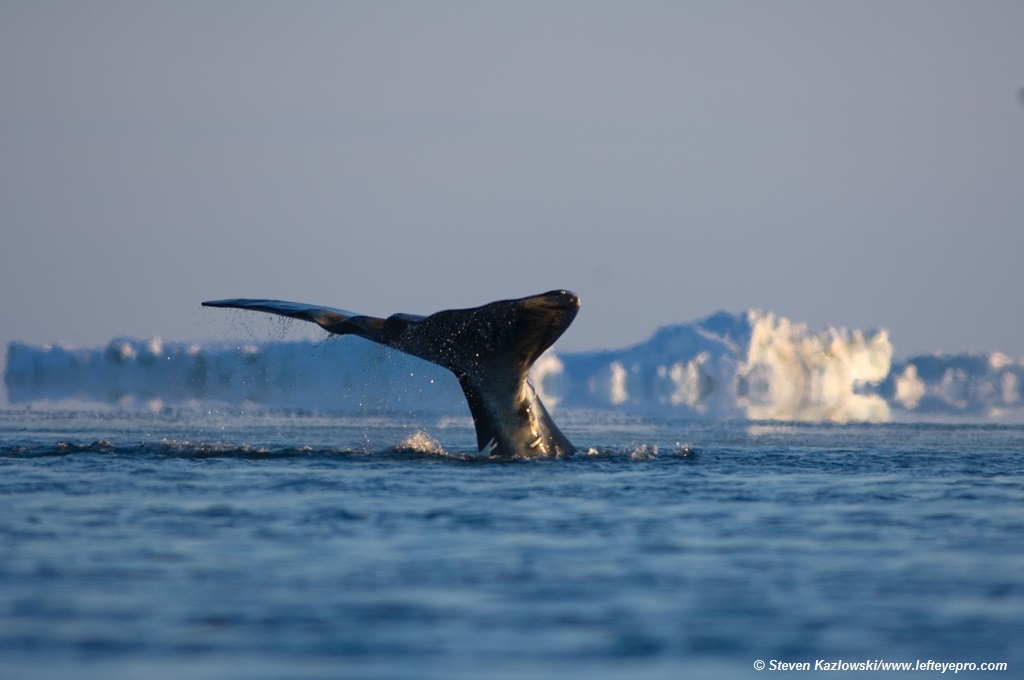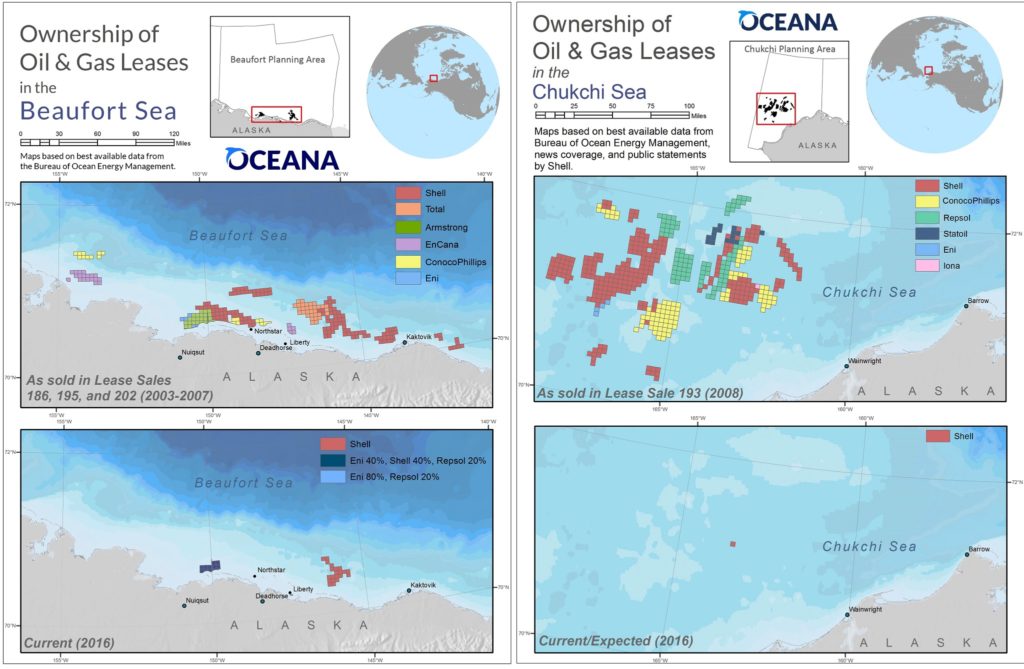It’s Time To Permanently Protect The Arctic Ocean

In November, President Obama took the bold step of removing the Arctic and Atlantic Oceans from the five-year offshore leasing plan for 2017-2022, which included one proposed lease in the Chukchi Sea and one in the Beaufort Sea.
This decision was critical for prioritizing our coastal residents, our wildlife, our climate and the pristine Arctic Ocean over Big Oil and its short-term interests. President Obama listened to the call of coastal communities, scientists, and the large majority of Americans who recognize that offshore drilling is too risky and too dirty to allow.
The president and his administration had ample reason to drop these leases. For starters, earlier this year Royal Dutch Shell, ConocoPhillips and other companies quietly relinquished leases in the Arctic, citing a laundry list of problems including “environmental risks.” The risk of an oil spill is proven and it is significant – if oil was spilled in the Arctic, it would be a disaster. As we’ve seen from the Deepwater Horizon and Exxon Valdez spills, there is no such thing as an effective clean up. Once oil has been spilled the battle has been lost, and the consequences will be felt for years to come.
Deepwater Horizon (United States Coast Guard)
When you combine the environmental risks with the lack of Arctic infrastructure, the still-low price of oil, and the national public outcry against Arctic drilling, it’s easy to see why companies are apprehensive about following on the heels of Shell’s Arctic misadventure – highlighted by disastrous 2012 and 2015 drilling campaigns. Oil companies have since relinquished 2.2 million acres of drilling rights in the Chukchi Sea – in fact, only Shell is still holding on to one parcel in the Chukchi Sea: the tract it drilled unsuccessfully in 2015. And in the Beaufort, 77 federal leases remain, a large chunk of which will expire in 2017.
Remaining leases in the Beaufort and Chukchi sea (Oceana)
Putting the brakes on Arctic drilling is also critical for countless species of wildlife. The Chukchi Sea serves as a migration corridor and important area for the endangered bowhead whale and thousands of spotted seals, as well as a key location where walrus come ashore to rest or “haul out.” The Beaufort Sea also serves as a migration corridor for whales and is vital habitat for birds as well. And the Arctic is home to the entire population of U.S. polar bears. This marine wildlife, especially the endangered bowhead whale, is also vital to the survival of the subsistence culture of the Inupiat people of Alaska’s North Slope.
A ringed seal in the Beaufort Sea (Florian Schulz, www.visionsofthewild.com)
The decision to drop proposed leases in the Arctic moves America one step closer to a clean energy future, one that sets the stage for protecting our climate in the long term. President Obama has honored our nation’s joint agreement with the Nordic nations to set bold standards to address climate change, while also advancing the agreements and commitments made in Paris to keep the average global temperature rise below 2 degrees.
The sun shines down on the Arctic Ocean (NASA Goddard Space Flight Center)
This is especially important in Alaska and the Arctic, on the front lines of climate change. The region is warming at twice the rate of anywhere else in the world. We are at a record low for Arctic sea ice at this time of year, and have been for weeks. At one point in November, it was about 36 degrees Fahrenheit warmer than normal over most of the Arctic Ocean, the second year in a row that the warming trend has risen to freakishly high levels. Communities in the Arctic are under duress on multiple fronts. Food security is an issue, as climate change alters migration routes and disrupts sea ice that many species depend on. And for many, their very homes are at risk as rising seas and eroding coastlines mean that soon relocation may be the only remaining option.
And so we applaud President Obama for taking the necessary step and removing the Arctic from the upcoming 2017-2022 offshore leasing plan. If we want to protect not just the Arctic, but continue the fight to arrest climate change, we simply cannot be opening new frontiers of this magnitude to development. And with a Republican Congress and a new administration coming in that are wearing blinders to the reality of our climate, we thank the president for continuing to lead by example even as his final term comes to an end. President Obama should continue to build on his climate legacy and permanently protect the Arctic Ocean from offshore drilling.




